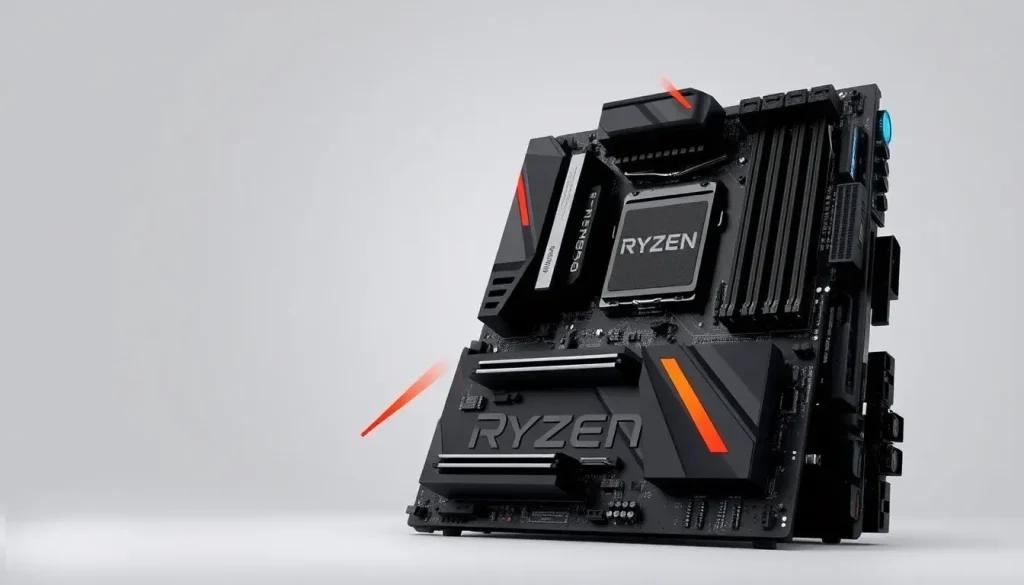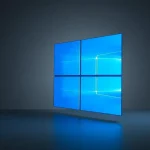ASRock confirms AMD 800 motherboards will support Ryzen 10000

As the world of PC hardware continues to evolve, new announcements about processor and motherboard compatibility have become increasingly important for tech enthusiasts and gamers alike. Recently, ASRock has joined the conversation alongside MSI and ASUS, confirming that their AMD B800 series motherboards will be compatible with the upcoming Ryzen 10000 processors. This revelation not only excites potential buyers but also clarifies the future-proofing of current hardware investments.
Understanding the implications of this news can help users make informed decisions when building or upgrading their PCs. With increasing competition in the CPU market, AMD's strides toward compatibility with its new architecture are a significant step forward for gamers and professionals seeking the best performance from their systems.
- ASRock confirms compatibility with AMD Zen 6 through B850 motherboards
- How does BIOS size impact compatibility and features?
- What we know about the upcoming AMD Ryzen 10000 processors
- Understanding motherboard compatibility for AMD processors
- What motherboards support Ryzen 5 processors?
- Future prospects of AMD motherboards
- Conclusion
ASRock confirms compatibility with AMD Zen 6 through B850 motherboards
ASRock has officially announced that its B850M Steel Legend WiFi motherboard will support the forthcoming AMD Zen 6 processors, similar to ASUS’s earlier revelation. Unlike ASUS, ASRock's B850 model is already available on the market and operates with a BIOS that features 32 MB of storage.
This compatibility is vital for users building new systems today, as it ensures they can leverage the advancements of the next-generation processors without needing to upgrade their motherboards. While other manufacturers like MSI and ASUS have introduced motherboards with 64 MB BIOS to accommodate newer features, ASRock's approach shows that a 32 MB BIOS can still support future developments.
How does BIOS size impact compatibility and features?
The size of the BIOS can directly influence the features available on a motherboard. For example, boards with larger BIOS sizes can incorporate additional drivers and support for newer technologies, such as:
- Enhanced connectivity, including built-in Wi-Fi and Bluetooth drivers.
- Support for higher memory speeds and capacities.
- Improved power management features for efficient energy use.
ASRock’s ability to maintain compatibility without necessarily requiring a larger BIOS indicates a strategic focus on cost-effective solutions while still catering to the future needs of users. However, as technology progresses, it may become essential to consider motherboards with larger BIOS sizes to fully utilize the features of future components.
What we know about the upcoming AMD Ryzen 10000 processors
The anticipated AMD Ryzen 10000 series, codenamed "Medusa," is expected to launch with the new Zen 6 architecture. Speculation suggests that these processors will hit the market between late 2026 and early 2027, although concrete details remain limited.
Key features expected from the Ryzen 10000 processors include:
- Manufactured using TSMC’s advanced 2 nm and 3 nm node technologies.
- Support for up to 10 or 12 cores per chiplet, enhancing multi-threading capabilities.
- Improved instructions per clock (IPC) alongside higher clock frequencies.
- Native support for DDR5 memory speeds up to 6,400 MT/s.
These enhancements not only promise better performance but also demonstrate AMD's commitment to pushing the boundaries of CPU technology.
Understanding motherboard compatibility for AMD processors
For users looking to build or upgrade their systems, knowing whether a motherboard is compatible with specific processors is crucial. Here are some tips to determine compatibility:
- Check the motherboard chipset: Chipsets like AM5 are designed to support newer AMD processors.
- Look for BIOS updates: Manufacturers often release updates that enhance compatibility with new processors.
- Consult the manufacturer’s website: Most manufacturers provide detailed lists of compatible CPUs for each motherboard model.
With the recent announcements, users should consider investing in the AM5 platform, particularly the B800 series motherboards, to ensure they can upgrade to Ryzen 10000 processors when they become available.
What motherboards support Ryzen 5 processors?
When it comes to building a system around the Ryzen 5 series, several motherboards are compatible. Here are key options that support Ryzen 5 processors:
- ASRock B550 Steel Legend
- MSI B550 Gaming Edge WiFi
- Gigabyte B550 AORUS Elite
Choosing the right motherboard can significantly impact overall system performance, especially when optimizing for gaming or intensive tasks.
Future prospects of AMD motherboards
As AMD prepares to launch its next generation of processors, the demand for compatible motherboards will likely increase. Users should keep an eye on developments regarding:
- New chipset releases that may offer enhanced features or capabilities.
- Manufacturers’ announcements regarding BIOS updates for existing motherboards.
- Price trends for current motherboards as users anticipate the new Ryzen processors.
A thorough understanding of these factors will help consumers make informed decisions about their hardware investments.
For additional insights into the differences between entry-level and high-end motherboards, consider watching this informative video:
Conclusion
As the technology landscape evolves, keeping informed about motherboard and CPU compatibility is essential for anyone looking to build a powerful and future-proof PC. With companies like ASRock, MSI, and ASUS confirming compatibility with the upcoming Ryzen 10000 processors, users are in a strong position to make effective purchasing decisions that will carry them into the next generation of computing.




Leave a Reply